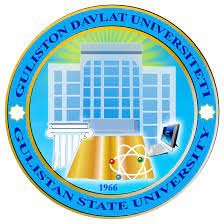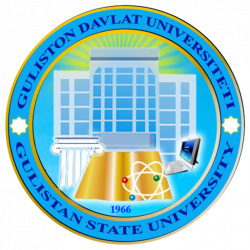Information about the University's scientific laboratories.

Information about the University's scientific laboratories.
In order to ensure a strong link between science and education and to ensure the viability of new ideas, technologies and projects, at the departments of the university there are scientific laboratories, research centers and branches of the department.
Research labs and research centers serve as an important link between education and production.
The University's seven research laboratories are aimed at establishing scientific cooperation, learning and addressing local and regional issues. Leading professors and associate professors are leading these laboratories.
Scientific research laboratories operating at the University
|
№ |
The name of laboratories |
In which chair are they engaged |
|
1. |
Chemistry of the Soil and plant |
“Chemistry” |
|
2. |
Chemistry of organic substances |
“Chemistry” |
|
3. |
Organising contemporary informational technology to the proccess of education |
“Informationl technologies” |
|
4. |
Experimental biology |
“Biology” |
|
5. |
The Ecology of plants |
“Ecology and geography” |
|
6. |
The center of pedogogical innovations: 1-laboratory 2-laboratory 3-laboratory |
“Pedagogy and psychology” |
|
7. |
The laboratory of the mid-proccessor and geophysics |
“Physics” |
In addition to professors, teachers, doctoral students, independent researchers and gifted students, specialists from industrial enterprises and institutions are involved in these laboratories. This will serve as an important basis for the development of integration between science and industry. Especially, this can be seen in the visits of colleagues and employees of manufacturing enterprises and educational institutions and jointly conducted work.
Most of the work done at the scientific laboratories of Gulistan State University is focused on improving the reclamation status of saline soils in Mirzachul and rational use of water. Research has revealed the negative effects of using unsupervised agrotechnical measures. Specifically, the lost waste water has led to the increase in groundwater, resulting in secondary salinization of the soil. Scientists in the University are researching the factors that reduce their water consumption, making recommendations, taking into account land salinization. Ensuring that irrigation systems are composed of concrete pits, efficient use of perforated and closed drainage, planting trees around the waterways, filtering drainage, re-use of irrigation water for irrigation, rice and scientifically-based recommendations, such as water discharge, to farmers.
Share on social networks


.gif)


 O'zbekcha
O'zbekcha Русский
Русский English
English 中文
中文


.jpg)





